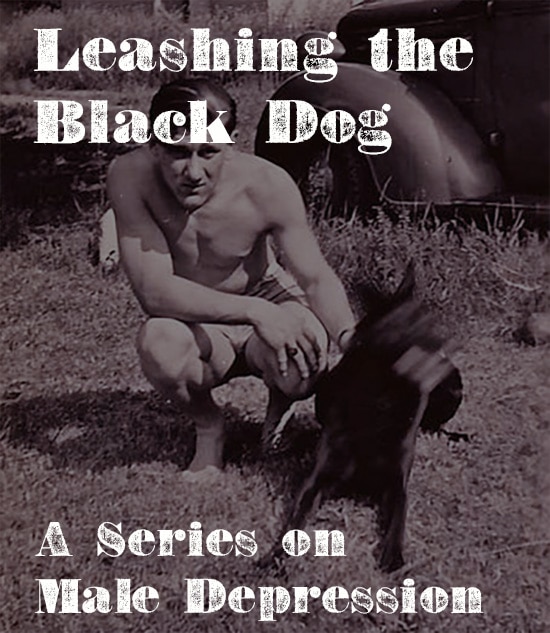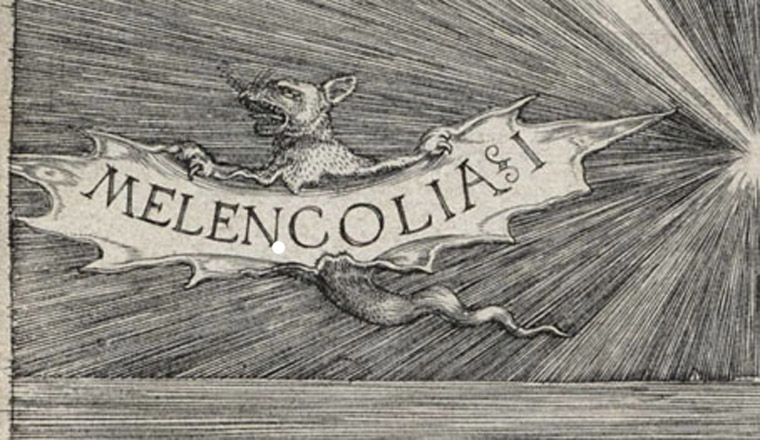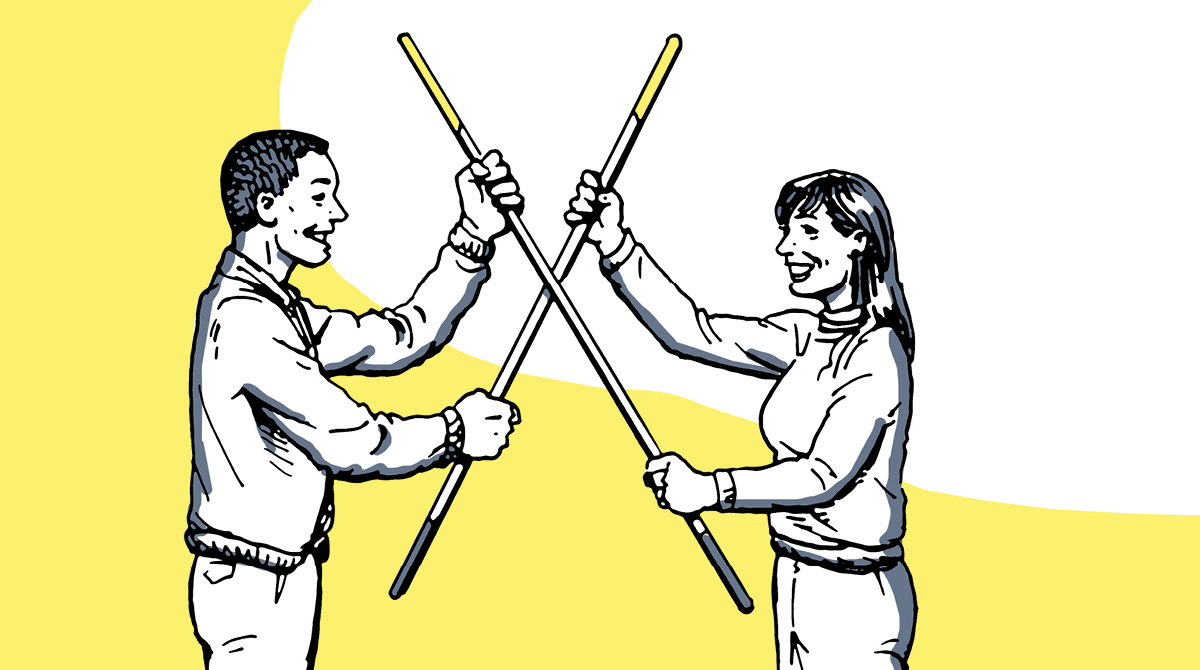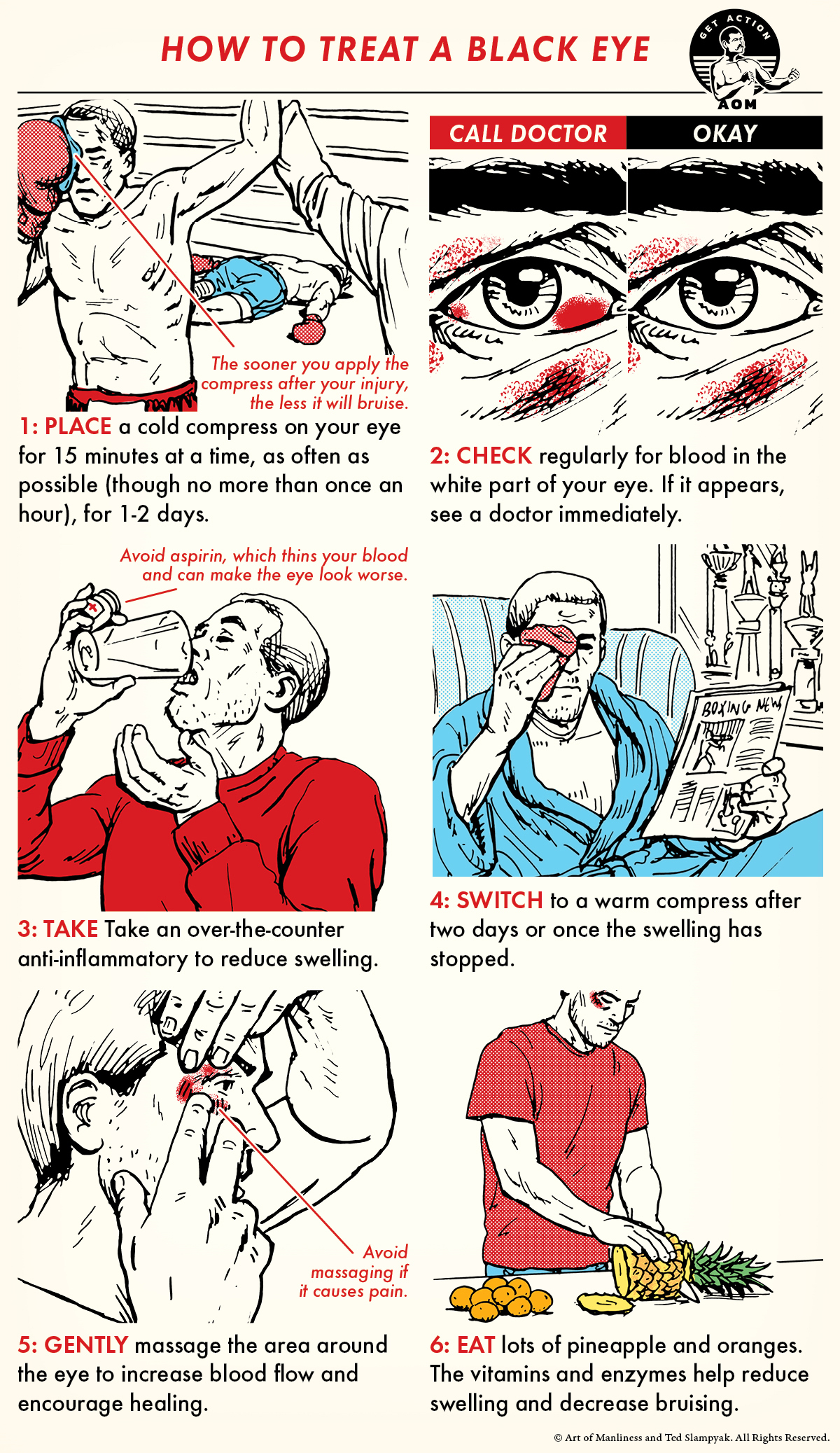
This article series is now available as a professionally formatted, distraction-free book to read offline at your leisure. Available as an ebook or a paperback.
Depression runs in my family. I grew up hearing stories and seeing family members sink into low moods for extended periods of time.
When I was in high school, the “black dog,” as Winston Churchill called it, finally paid a visit to me. It was the spring semester of my senior year. (Between 20 and 30 years old is when most people experience their first major depressive episode; at 18, I was about on schedule.) I had been super busy balancing AP classes, student council, church youth activities, and work. I guess all the stress caught up to me (research shows that prolonged periods of intense stress can set off a depressive episode). At first I thought it was just burnout, something I had experienced and recovered from before. But as the weeks passed, I started feeling more and more down. There came a point when I just felt emotionally numb. I didn’t feel sad or happy — just gray from the time I woke up to the time I went to bed. Motivation was non-existent. Simply going through the motions of school and work was an exercise in pure will. I just wanted to stay in bed and not do anything.
After a few months, this pervasive, impenetrable fog of grayness started to really get to me. I would have done anything just to feel something different — to feel anything, really. “Why can’t I be happy?” I kept asking myself. I figured I could just snap out of it and get back to normal. But no matter how much I tried, nothing changed.
One night after a particularly long work shift, my mind started going to a pretty dark place. Killing myself began to seem like the best way to escape the land of emotional nothingness my life had become. Ideas of how to do it started popping into my head: gunshot, hanging, overdosing. When I pulled into the driveway at my house, I sat in my car staring at the steering wheel for 45 minutes just thinking about the unthinkable. But even the thought of suicide didn’t spur an emotional reaction from me. That fact — that I felt absolutely nothing while contemplating the prospect of ending my life — made me snap. I started sobbing uncontrollably.
I knew I needed help.
I walked into the house and told my mom, “Something’s wrong with me.”
My parents had a vague idea that I wasn’t doing too well. They noticed that I wasn’t as chipper or motivated as I usually was, but they didn’t know the extent of the darkness I had plunged into. So I told them.
Thankfully I had a strong support system in place. I went and talked to my minister at church (who happened to also be my boss) and let him know what was going on. He provided some good spiritual and emotional counsel. I told him that I needed to quit my job so I could take care of myself. He accepted my resignation gracefully and left open the opportunity for me to come back when I was ready. Close friends and family got behind me. They didn’t coddle me or throw pity parties, they just made an extra effort to reach out. A man at church invited me out to his ranch to ride horses. He knew it was something I enjoyed, but hadn’t done in awhile. He also figured I could use some fresh air and sunlight. I took some road trips with friends and family. Nothing fancy. I went to see my grandpa in New Mexico and drove down to Texas with my brother and brother-in-law for something I can’t even remember. It didn’t matter. Just being around people was nice. My best bud and I got our fishing licenses and we’d follow dirt roads until we found some creek we could drop a line in. We never talked about “my funk,” as I called it, which was great, because it took my mind off it.
Suggestions of therapists and anti-depressants were made. I decided not to pursue those routes, though not because of any stigma; I just wanted to see what I could do on my own.
I slowed down at school and with student council and church stuff. I just focused on getting ready for my AP exams. In my spare time, I read, journaled, prayed, exercised. Some days were better than others. There’d be times when I felt that I finally had my funk beat, but then something would happen and the black dog would return with a vengeance. But little by little, the dark cloud that had been hanging over my head started to lift. There was never a defining moment where I was like, “Heck yeah! It’s over! I’m happy now!” I just felt better. Life had color again.
So that was my first major depressive episode.
I’ve had another since then, which isn’t surprising. The research shows that if you’ve had one major depressive incident, your chances of having another increase. My second visit from the black dog happened after I graduated from law school in 2009. The stress of three years of intense studying plus running the website and publishing a book, coupled with Kate and I losing a baby, pushed me over the edge and back into the land of grayness. In time, I got through that funk as well.
In addition to these two major bouts of depression, I also regularly pass through lesser jags of melancholy.
There have been a few times I’ve considered visiting a therapist, but I never did because of time constraints. So I settled for “bibliotherapy” or reading books and studies about treating depression in order to treat my own. I’ve spent a lot of time researching the subject. A lot. I even had my genome sequenced to see if I had the gene that researchers hypothesize makes a person more susceptible to depression. (Answer: I do.)
Through my research, I’ve discovered a lot of surprising things. The biggest discovery being that despite all the books written about how to treat depression and despite the billions of dollars of antidepressants prescribed each year in America, depression is still almost a complete mystery. Just when researchers think they’ve uncovered the possible causes and cures for it, another batch of studies will come out that refutes those theories. And despite nearly 30 years of research and a concerted effort by scientists, doctors, psychologists, and psychiatrists to treat depression, it’s still growing at an alarming rate and hitting individuals at younger and younger ages.
The other surprising discovery was that there are actually some benefits that come with a depressive temperament, like increased analytical ability, attention to detail, and a more objective worldview than optimists.
Finally, I was surprised by what I discovered about the cultural history of depression. Today in the West and particularly in America, depression is seen as a mental illness, something that you have to cure and get rid of right away through therapy and drugs. Everything is awesome and everyone is supposed to be “happy, happy, happy.” But throughout Western history, society took a more nuanced approach to depression, or “melancholy” as it was once called. It was seen as a temperament that came with both a curse and a blessing. The goal wasn’t to cure someone of melancholy, but rather to help them manage it so it didn’t deepen into “madness” or “hysteria.”
Depression isn’t something a lot of men like to talk about because in the modern West it is seen as a weakness, and a man isn’t supposed to be weak. What’s more, men are generally less apt to talk about how they’re feeling than women are. We’re more action-oriented and externally-driven, and pay less attention to what’s going on within.
I get it. I’m the same way.
But I know a lot of men are silently suffering. They’re tired of feeling numb inside. Suicide, a common outcome among people (especially men) experiencing severe depression, has been on the uptick since 2000. Of all the people who committed suicide in 2013, 77% were men. It’s a problem that hits men the hardest, but no one is talking about it that much. So for the next several weeks, we’re going to be giving depression the ol’ AoM treatment with an in-depth and highly researched series on the topic.
We’ll start off looking at the history of depression in the West because I think it puts this experience shared by many a great man throughout history (including Abe Lincoln, Winston Churchill, Tolstoy, and Buzz Aldrin) into some much needed context. The way we look at depression in the 21st century isn’t the way it’s always been viewed, and an exploration of this changing perspective can help you see your own depression in a different light.
We’ll then take a look at what current research says about the possible causes of depression (hint: we’ve got some hunches, but nothing definitive). We’ll also talk about how depression manifests itself in men, which differs from how it affects women.
Finally, we’ll share some research-backed tips as well as advice from great men from history who knew the black dog well that can help mitigate your melancholy. There are no promises of “cures” or that you’ll be the happiest man in the world if you follow the forthcoming advice. In fact, once I gave up on the idea that one day I’d magically be happy all the time, things actually got better. The tips I’ll provide are all about managing and making the most of your low moods — how to leash the black dog so it doesn’t get in the way of a life well-lived. The tips have worked for me; maybe they’ll work for you too.
Whether you suffer from depression, or have a good friend or loved one who does, I hope you’ll come along for this journey through the bleak world of melancholy and out to the other side.
Read the Series
The History of Depression
What Causes Depression? The Symptoms of Male Melancholy
How to Manage Depression







